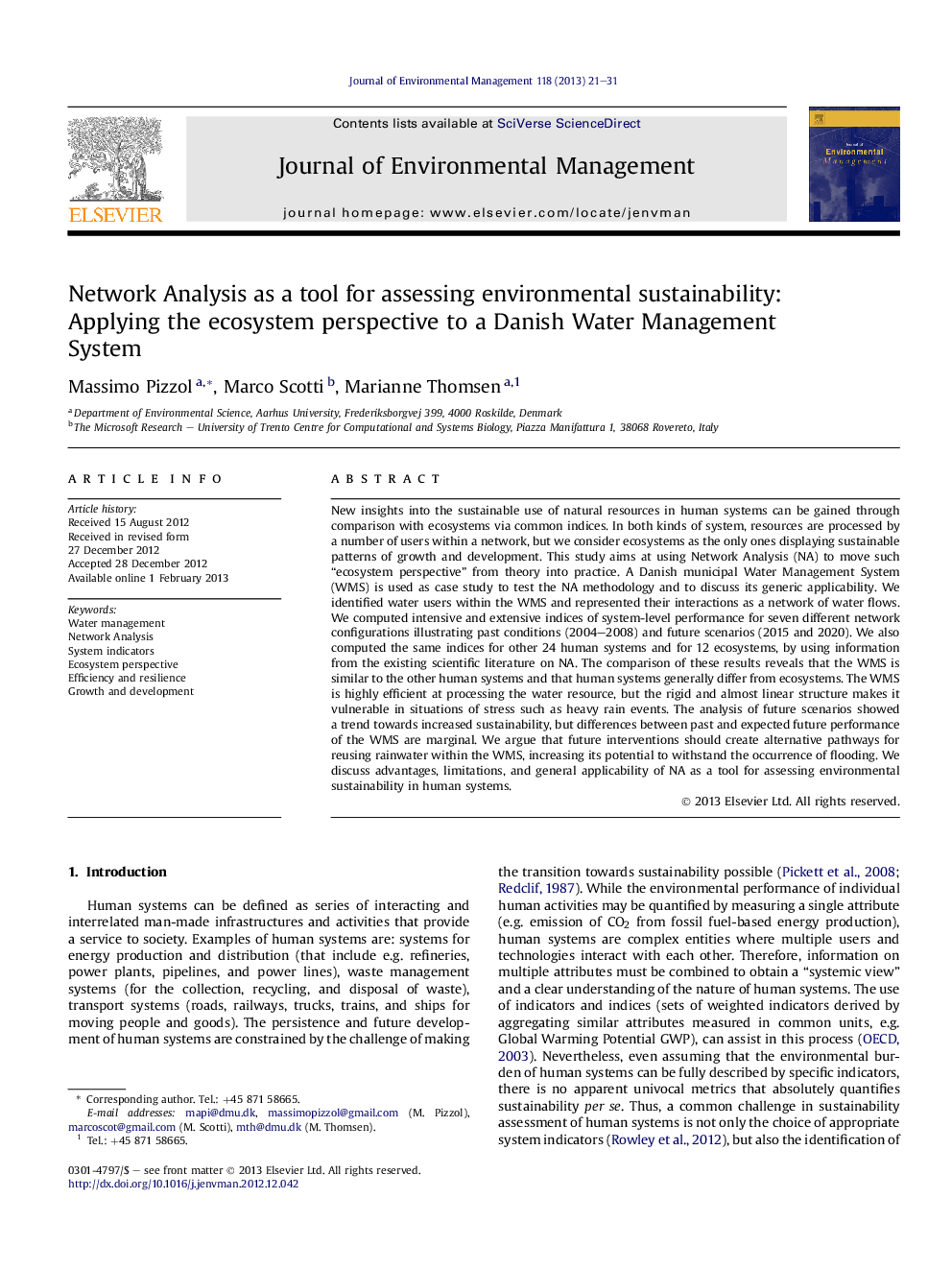| Article ID | Journal | Published Year | Pages | File Type |
|---|---|---|---|---|
| 1056453 | Journal of Environmental Management | 2013 | 11 Pages |
New insights into the sustainable use of natural resources in human systems can be gained through comparison with ecosystems via common indices. In both kinds of system, resources are processed by a number of users within a network, but we consider ecosystems as the only ones displaying sustainable patterns of growth and development. This study aims at using Network Analysis (NA) to move such “ecosystem perspective” from theory into practice. A Danish municipal Water Management System (WMS) is used as case study to test the NA methodology and to discuss its generic applicability. We identified water users within the WMS and represented their interactions as a network of water flows. We computed intensive and extensive indices of system-level performance for seven different network configurations illustrating past conditions (2004–2008) and future scenarios (2015 and 2020). We also computed the same indices for other 24 human systems and for 12 ecosystems, by using information from the existing scientific literature on NA. The comparison of these results reveals that the WMS is similar to the other human systems and that human systems generally differ from ecosystems. The WMS is highly efficient at processing the water resource, but the rigid and almost linear structure makes it vulnerable in situations of stress such as heavy rain events. The analysis of future scenarios showed a trend towards increased sustainability, but differences between past and expected future performance of the WMS are marginal. We argue that future interventions should create alternative pathways for reusing rainwater within the WMS, increasing its potential to withstand the occurrence of flooding. We discuss advantages, limitations, and general applicability of NA as a tool for assessing environmental sustainability in human systems.
Graphical abstractFigure optionsDownload full-size imageDownload as PowerPoint slideHighlights► The sustainability of a Danish Water Management System (WMS) is investigated. ► Network Analysis is used to compute system-level indices of performance for the WMS. ► The WMS is compared with 12 ecosystems and 24 human systems using the same indices. ► The WMS performs differently from ecosystems: it is efficient but not resilient. ► Future interventions should increase complexity and flexibility within the WMS.
